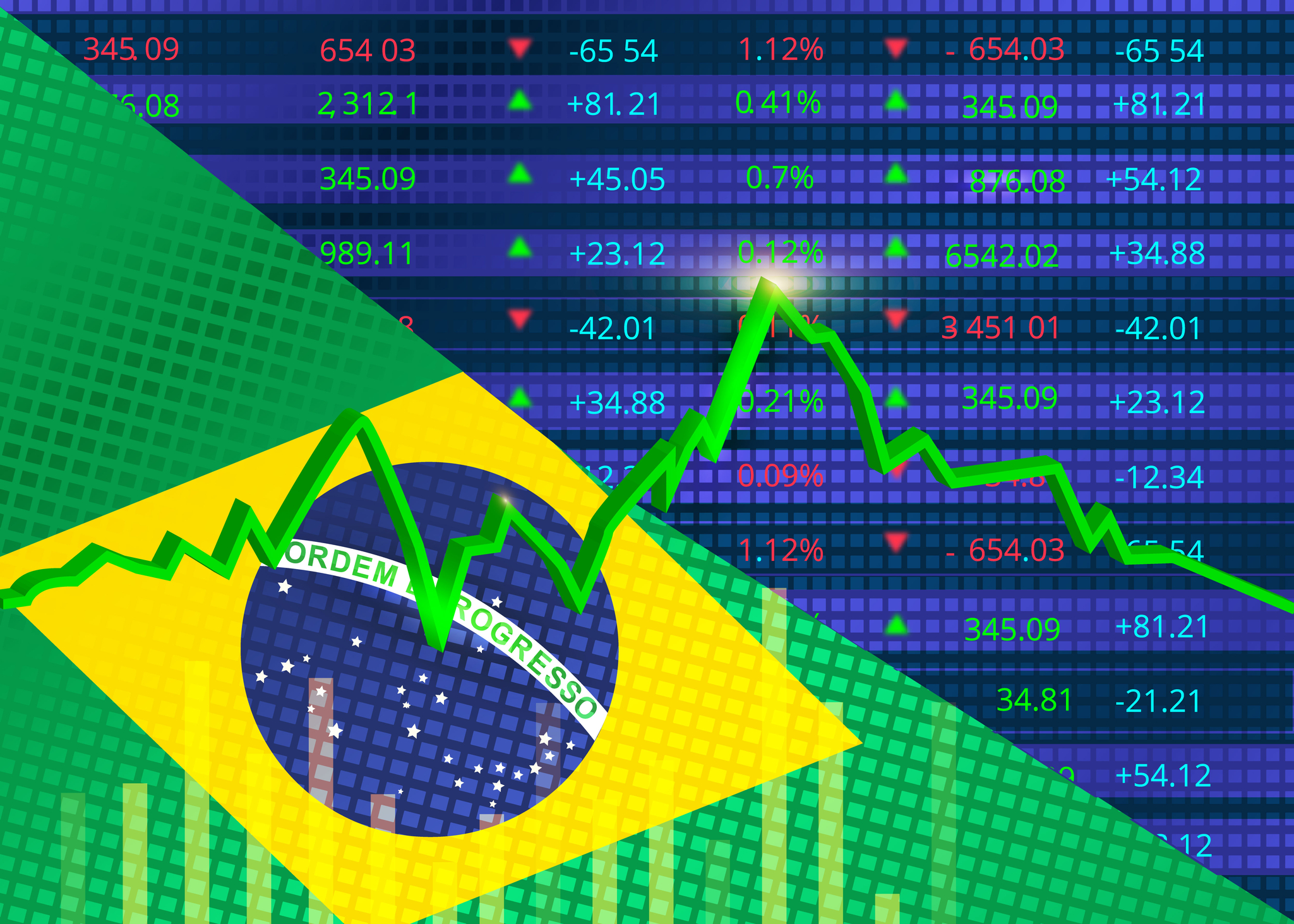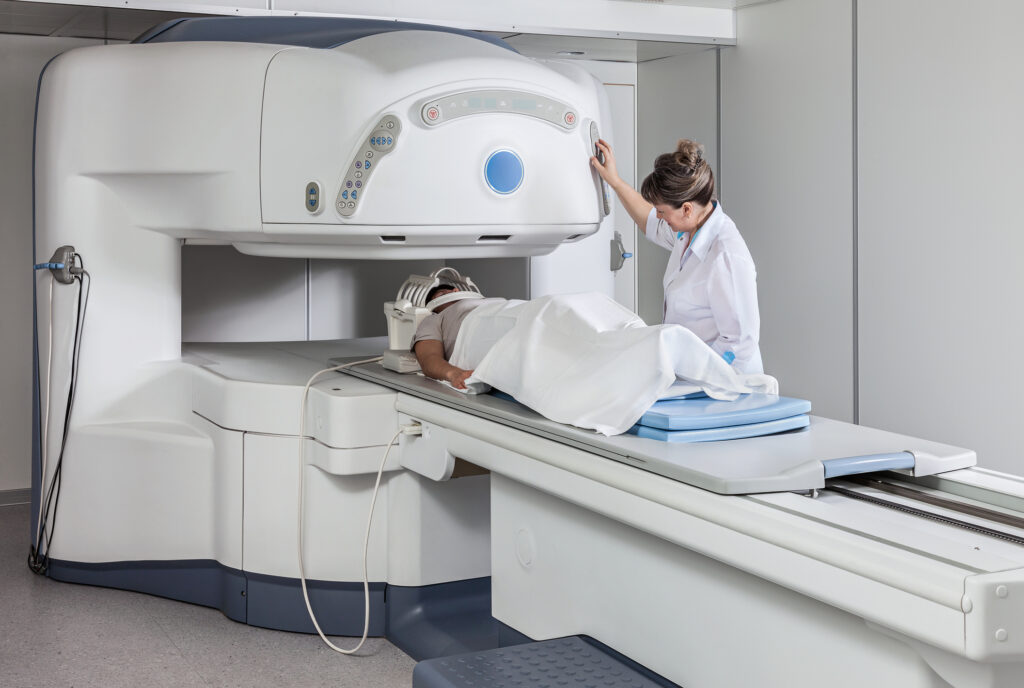The growing radiopharmaceutical market in Brazil is increasingly vital for advanced medical diagnostics and treatments in oncology, cardiology, and neurology.
Growth and Innovation in Healthcare
As in many other countries, the radiopharmaceuticals market in Brazil is a significant and growing segment of the healthcare industry. This market primarily revolves around the production and use of radiopharmaceuticals, which are unique medicinal formulations containing radioisotopes used in the field of nuclear medicine. These radiopharmaceuticals are crucial in diagnostics and therapeutics, particularly in oncology, cardiology, and neurology.
The financial market for radiopharmaceuticals in Brazil is experiencing significant growth, driven by the increasing prevalence of chronic diseases such as cancer, advancements in imaging technologies, and a growing senior population. Over the next decade, the Brazilian radiopharmaceuticals market is projected to reach $331.7 million. This growth is further supported by rising investments in the healthcare industry, public health awareness, and the introduction of new and advanced radiopharmaceuticals like fluorine-18 and gallium-68.
Typically, radiopharmaceuticals approved by the U.S. FDA may also gain approval in Brazil through ANVISA (the Brazilian Health Regulatory Agency), although the specific approvals may vary. The most common and widely used radiopharmaceuticals include technetium-99m, iodine-131, and gallium-68, which have seen increased usage in Brazil due to their effectiveness in diagnosing and treating diseases like cancer.
Market Overview
Various factors significantly influence Brazil’s radiopharmaceutical market, including the prevalence of chronic diseases, advancements in medical imaging technologies, and government initiatives in healthcare. The country’s large ageing population is a key driver in the increasing demand for advanced diagnostic and treatment options.
Chronic diseases such as cancer, cardiovascular diseases, and neurological disorders are notably prevalent in Brazil. These conditions often require precise and early diagnosis for effective management, which radiopharmaceuticals can facilitate. These radioactive compounds, used in nuclear medicine, are instrumental in diagnosing and treating these diseases. They offer unique benefits in medical imaging, such as providing detailed images of the body’s biological processes, which are crucial in detecting and monitoring chronic diseases.
The advancement in medical imaging technologies is another pivotal factor propelling the market forward. Brazil has seen significant progress in adopting and developing imaging techniques like Positron Emission Tomography (PET) and Single Photon Emission Computed Tomography (SPECT). These advancements enhance diagnostic procedures’ efficacy and precision, increasing reliance on radiopharmaceuticals.
Government initiatives in Brazil also play a vital role in the growth of the radiopharmaceutical market. The Brazilian government, recognising the importance of advanced healthcare solutions, has supported research and development in this field. This includes funding for healthcare infrastructure and policy frameworks that encourage the use of innovative medical technologies.
In addition to these factors, the general rise in healthcare awareness and the focus on personalised medicine in Brazil contribute to the growing demand for radiopharmaceuticals. Personalised medicine, which involves tailoring medical treatment to the individual characteristics of each patient, often relies on the detailed imaging and targeted therapeutic capabilities of radiopharmaceuticals.
Key Players and Production
The Brazilian radiopharmaceutical market is characterised by the presence of several key players, both domestic and international, that specialise in the production and distribution of radiopharmaceuticals. These companies are at the forefront of advancing nuclear medicine in Brazil, providing essential products for diagnostic and therapeutic procedures. The market dynamic balances the contributions of well-established international corporations with the growing influence of domestic companies, fostering a competitive and innovative environment.
A significant aspect of Brazil’s radiopharmaceutical sector is the role played by the government, mainly through institutions like the Brazilian Nuclear Energy Commission (CNEN). CNEN regulates and aids in developing this sector, ensuring that practices adhere to safety standards and contribute to advancing nuclear medicine in Brazil. The government’s involvement is crucial in maintaining the quality and safety of radiopharmaceutical products, thus protecting public health.
One of the primary objectives in the Brazilian radiopharmaceutical sector is achieving self-sufficiency in the production of radioisotopes, especially technetium-99m. This radioisotope is the most widely used in diagnostic procedures due to its ideal physical and chemical properties. It is used in approximately 80% of all nuclear medicine procedures worldwide, making its reliable and consistent supply crucial for the healthcare system. By focusing on self-sufficiency in producing technetium-99m, Brazil aims to reduce its dependence on imports, which can be subject to supply chain disruptions and fluctuating prices.
The government’s emphasis on domestic production of technetium-99m and other radioisotopes aligns with broader national healthcare objectives. This initiative supports the local radiopharmaceutical industry and ensures a stable supply of essential medical isotopes for the healthcare sector. It reflects Brazil’s commitment to advancing its capabilities in nuclear medicine, providing a foundation for continued innovation and improvement in patient care.
Regulatory Environment
The regulatory environment for radiopharmaceuticals in Brazil is marked by its stringency, reflecting the country’s commitment to ensuring the safety and efficacy of these critical medical products. The production, handling, and disposal of radiopharmaceuticals are governed by a comprehensive set of regulations designed to protect both healthcare professionals, patients, and the environment.
The National Health Surveillance Agency (ANVISA), Brazil’s primary health regulatory body, is at the centre of this regulatory framework. ANVISA is responsible for the oversight of radiopharmaceuticals, from the approval stages through to their eventual distribution and use in medical facilities. This includes rigorous evaluation processes to ensure that all radiopharmaceuticals meet the highest quality and safety standards before they can be made available for medical diagnosis and treatment.
ANVISA’s regulations cover a wide range of aspects, including the approval of new radiopharmaceuticals, quality control in their production, safe handling practices, and proper disposal methods to mitigate environmental risks. These guidelines are critical given the unique characteristics of radiopharmaceuticals, which include radioactivity and the need for precise calibration to ensure accurate diagnostic and therapeutic results.
The Brazilian regulatory framework for radiopharmaceuticals is not static; it is continually evolving to keep pace with advancements in the field. As new technologies and methods are developed, regulations are updated to incorporate these changes, ensuring that Brazil’s radiopharmaceutical industry remains at the forefront of global best practices. This dynamic approach also involves aligning Brazil’s regulations with international standards, facilitating global collaboration and exchange of knowledge in the field of nuclear medicine.
Challenges and Opportunities
In the Brazilian radiopharmaceutical market, one of the main challenges lies in the infrastructure required for producing and distributing radiopharmaceuticals. This segment necessitates significant investment, primarily due to the complexity and sensitivity of the supply chain involved in handling radioisotopes. The nature of radiopharmaceuticals, particularly their short, demands a highly efficient and time-sensitive distribution system. Ensuring that these substances are delivered quickly and safely from production facilities to medical centres is crucial, as any delay can render them ineffective for diagnostic or therapeutic purposes.
This challenge, however, also opens up considerable opportunities for growth and investment, especially for companies specialising in nuclear technology and logistics. There is a growing need for advanced technological solutions to optimise production and distribution processes. Investment in state-of-the-art facilities, innovative transportation methods, and effective storage solutions is essential to meet the stringent requirements of handling radiopharmaceuticals.
Furthermore, companies that can navigate the complex regulatory landscape and offer reliable, efficient solutions are likely to find a receptive market in Brazil. This scenario presents a unique opportunity for players in the nuclear technology and logistics sectors to innovate and contribute to the advancement of the radiopharmaceutical industry, ultimately leading to better healthcare outcomes in the country. The demand for such specialised services and technologies is expected to grow in parallel with the expansion of the radiopharmaceutical market in Brazil.
Technological Advancements
Technological advancements are a key driving force in the expansion of the radiopharmaceutical market, playing a pivotal role in enhancing the precision and efficacy of diagnostic and therapeutic procedures. The development of new radiotracers, which are substances used in imaging to highlight specific organs or cells in the body, has significantly improved the ability of doctors to diagnose and treat various diseases. These advancements offer more detailed and accurate imaging and open up new possibilities for targeted therapies.
In Brazil, there has been a notable increase in the adoption of advanced imaging technologies such as PET and SPECT. These imaging modalities are heavily reliant on radiopharmaceuticals and have revolutionised the field of nuclear medicine. PET scans, for instance, are highly effective in detecting cancerous tumours and monitoring response to therapy. At the same time, SPECT imaging is widely used in cardiac imaging to assess blood flow and heart function.
The adoption of these technologies in Brazil reflects a growing trend towards more sophisticated medical diagnostic tools. It highlights the country’s commitment to embracing modern healthcare technologies, which, in turn, drives the demand for radiopharmaceuticals. As Brazil continues to invest in and adopt these advanced imaging technologies, the radiopharmaceutical market is expected to grow correspondingly, thereby enhancing the capabilities of healthcare providers in diagnosing and treating various conditions more effectively.
Market Trends
The shift towards personalised medicine is significantly influencing the radiopharmaceutical market, marking a paradigm shift in healthcare. Personalised medicine focuses on tailoring medical treatment to a patient’s individual characteristics, needs, and preferences rather than a one-size-fits-all approach. In this context, radiopharmaceuticals are gaining prominence due to their potential in targeted therapies, particularly in the treatment of specific types of cancer and other diseases.
Radiopharmaceuticals offer the advantage of delivering treatment directly to the affected cells with minimal impact on healthy tissues. This targeted approach is especially beneficial in oncology, where precision is crucial for effective therapy while minimising side effects. Radiopharmaceuticals are also being explored for their potential in treating neurological disorders, cardiovascular diseases, and other conditions where specific targeting can lead to better outcomes.
The market is experiencing increased collaboration between pharmaceutical companies and research institutions, a partnership vital for developing new and more effective radiopharmaceuticals. These collaborations are pooling resources, knowledge, and expertise to drive innovation in this field. They explore new radiotracers, enhance imaging techniques, and develop novel therapeutic radiopharmaceuticals. This collective effort is not only pushing the boundaries of what is possible in nuclear medicine but also ensuring that the advances align with the personalised needs of patients, thereby contributing to more effective and individualised healthcare solutions.
Impact of COVID-19
The COVID-19 pandemic has had an impact on the radiopharmaceutical market in Brazil, mirroring its effects on the broader healthcare sector. Initially, the pandemic led to a significant slowdown in elective medical procedures, which included many diagnostic and therapeutic processes that rely on radiopharmaceuticals. This decline was primarily due to the redirection of healthcare resources towards managing COVID-19 cases and the postponement of non-urgent medical care to reduce the risk of virus transmission.
However, the pandemic also served to highlight the critical importance of advanced diagnostic and therapeutic tools in managing health crises. Given their role in precise diagnosis and targeted therapy, Radiopharmaceuticals have been recognised as essential in the broader context of medical preparedness and response. This recognition has spurred a re-evaluation of healthcare priorities and investments, potentially leading to increased focus and funding in the radiopharmaceutical sector.
In the long term, the pandemic may thus act as a catalyst for growth in the radiopharmaceutical market in Brazil. The heightened awareness of the need for advanced medical technologies could drive innovation and development in this field. Furthermore, the experience of the pandemic has underscored the importance of having a robust and resilient healthcare system, which includes a well-supported radiopharmaceutical industry capable of responding to future health emergencies. This shift in perspective will likely influence healthcare policy and investment decisions, favouring the growth and development of the radiopharmaceutical sector in the post-pandemic era.
Future Outlook
The radiopharmaceutical market in Brazil is at a pivotal juncture, with a future that appears both promising and dynamic. Many factors fuel this optimism, including the escalating demand for advanced medical imaging and therapy, supportive government policies, and continuous technological advancements. As the healthcare sector in Brazil evolves, it paves the way for steady growth in the radiopharmaceutical market, creating opportunities for both local and international players in the field.
Brazil’s increasing demand for sophisticated medical imaging and therapeutic options drives this market growth. With an ageing population and a rising incidence of chronic diseases such as cancer and cardiovascular disorders, the need for accurate diagnosis and effective treatment is more pressing than ever. With their ability to provide detailed imaging and targeted therapy, Radiopharmaceuticals are becoming indispensable in addressing these healthcare challenges.
Government support in Brazil plays a crucial role in this growth trajectory. Initiatives to enhance healthcare infrastructure, investments in research and development, and favourable regulatory policies are bolstering the radiopharmaceutical sector. These actions facilitate market expansion and ensure that advancements in this field align with public health needs and safety standards.
Technological advancements are another pillar supporting the growth of Brazil’s radiopharmaceutical market. Innovations in radiotracer development, imaging techniques, and therapeutic applications are continuously expanding the capabilities and applications of radiopharmaceuticals. This progress is crucial in enhancing the efficiency and efficacy of medical procedures, thereby driving the market forward.
Looking ahead, the radiopharmaceutical market in Brazil is poised for significant growth, influenced by technological innovations, regulatory developments, and the overall maturation of the healthcare system. This market is essential in healthcare and pivotal in diagnosing and treating major diseases. As Brazil continues to invest in and prioritise healthcare, the radiopharmaceutical sector stands to benefit, evolving into an even more critical component of medical care. This growth phase presents a unique opportunity for stakeholders to contribute to a sector that is not only commercially viable but also vital for public health and wellness.
Disclaimer
The information provided in this article is for general informational and educational purposes only and reflects the views of the author(s) at the time of publication. Open Medscience does not guarantee the accuracy, completeness, or timeliness of the content and accepts no responsibility for any errors or omissions.
This article does not constitute professional medical, scientific, financial, or regulatory advice. Readers are advised to consult relevant healthcare professionals, qualified experts, or official sources before making decisions based on the information contained herein.
Any mention of companies, products, or regulatory bodies is intended for context only and does not imply endorsement or affiliation. Developments in the radiopharmaceutical sector are subject to rapid change, and Open Medscience assumes no liability for how the content may be used or interpreted.
By accessing this article, you acknowledge and agree that Open Medscience shall not be held liable for any direct or indirect consequences resulting from the use of this information.
home » blog » medical imaging topics »



